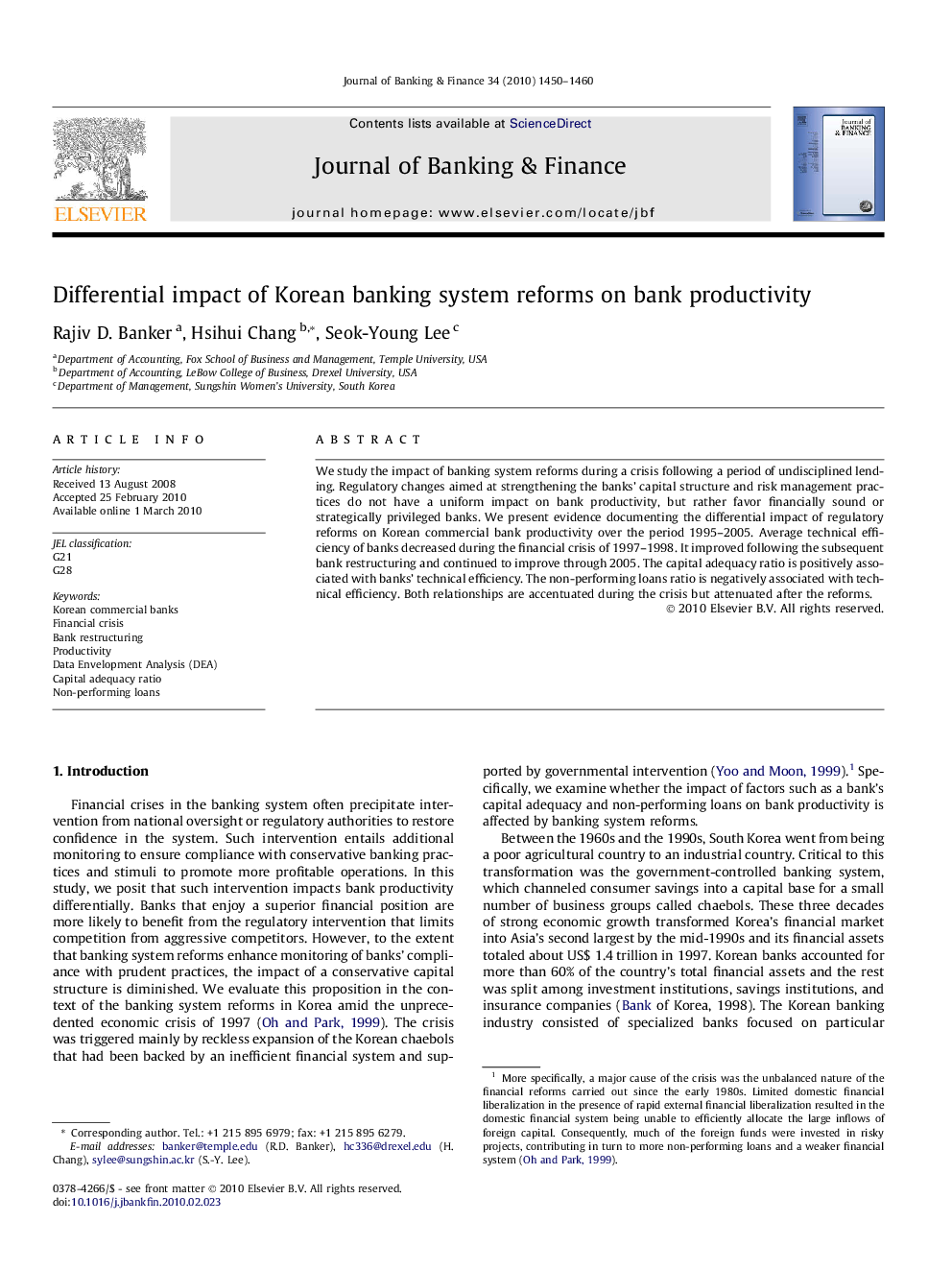| Article ID | Journal | Published Year | Pages | File Type |
|---|---|---|---|---|
| 5090787 | Journal of Banking & Finance | 2010 | 11 Pages |
Abstract
We study the impact of banking system reforms during a crisis following a period of undisciplined lending. Regulatory changes aimed at strengthening the banks' capital structure and risk management practices do not have a uniform impact on bank productivity, but rather favor financially sound or strategically privileged banks. We present evidence documenting the differential impact of regulatory reforms on Korean commercial bank productivity over the period 1995-2005. Average technical efficiency of banks decreased during the financial crisis of 1997-1998. It improved following the subsequent bank restructuring and continued to improve through 2005. The capital adequacy ratio is positively associated with banks' technical efficiency. The non-performing loans ratio is negatively associated with technical efficiency. Both relationships are accentuated during the crisis but attenuated after the reforms.
Keywords
Related Topics
Social Sciences and Humanities
Economics, Econometrics and Finance
Economics and Econometrics
Authors
Rajiv D. Banker, Hsihui Chang, Seok-Young Lee,
